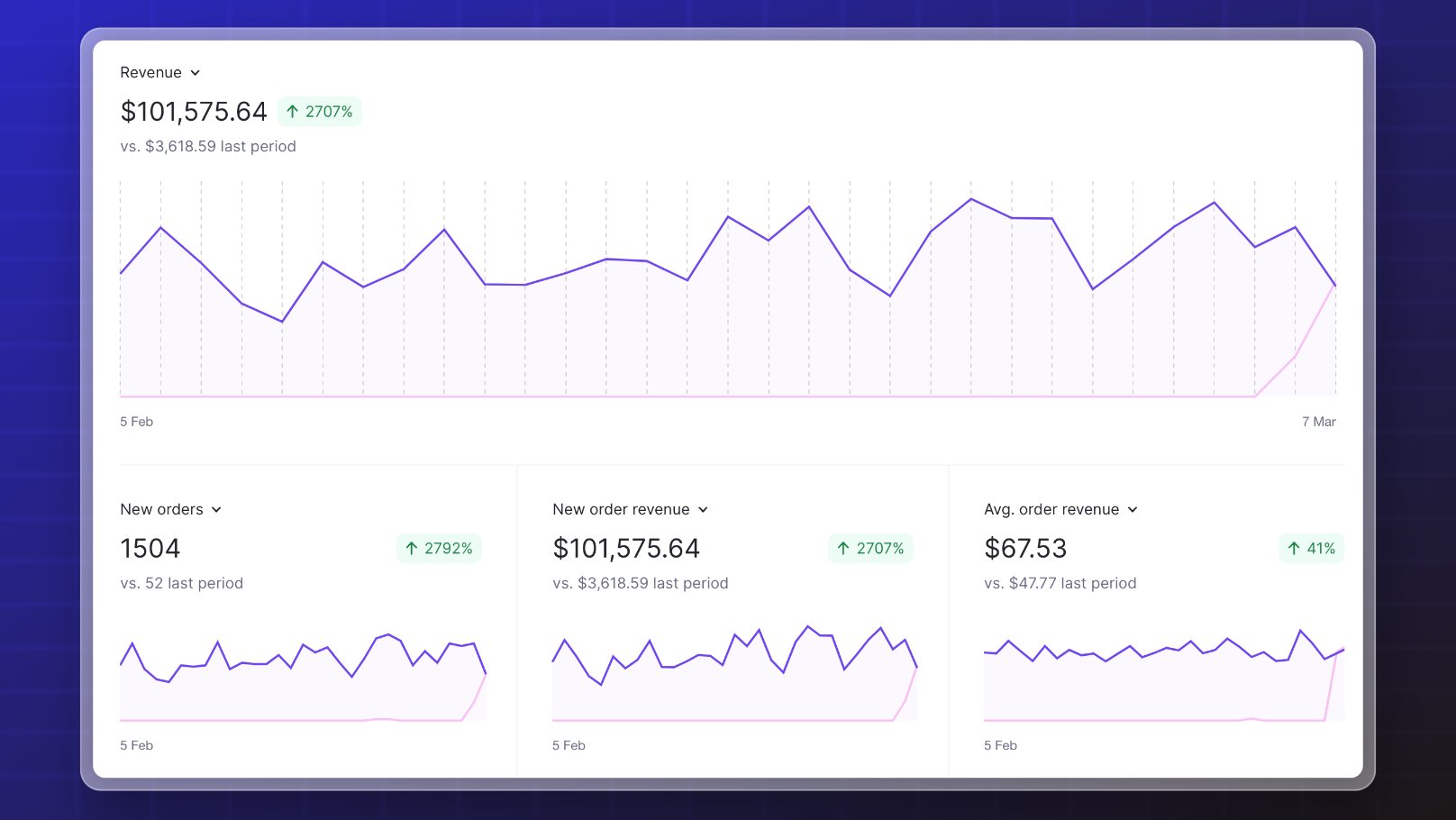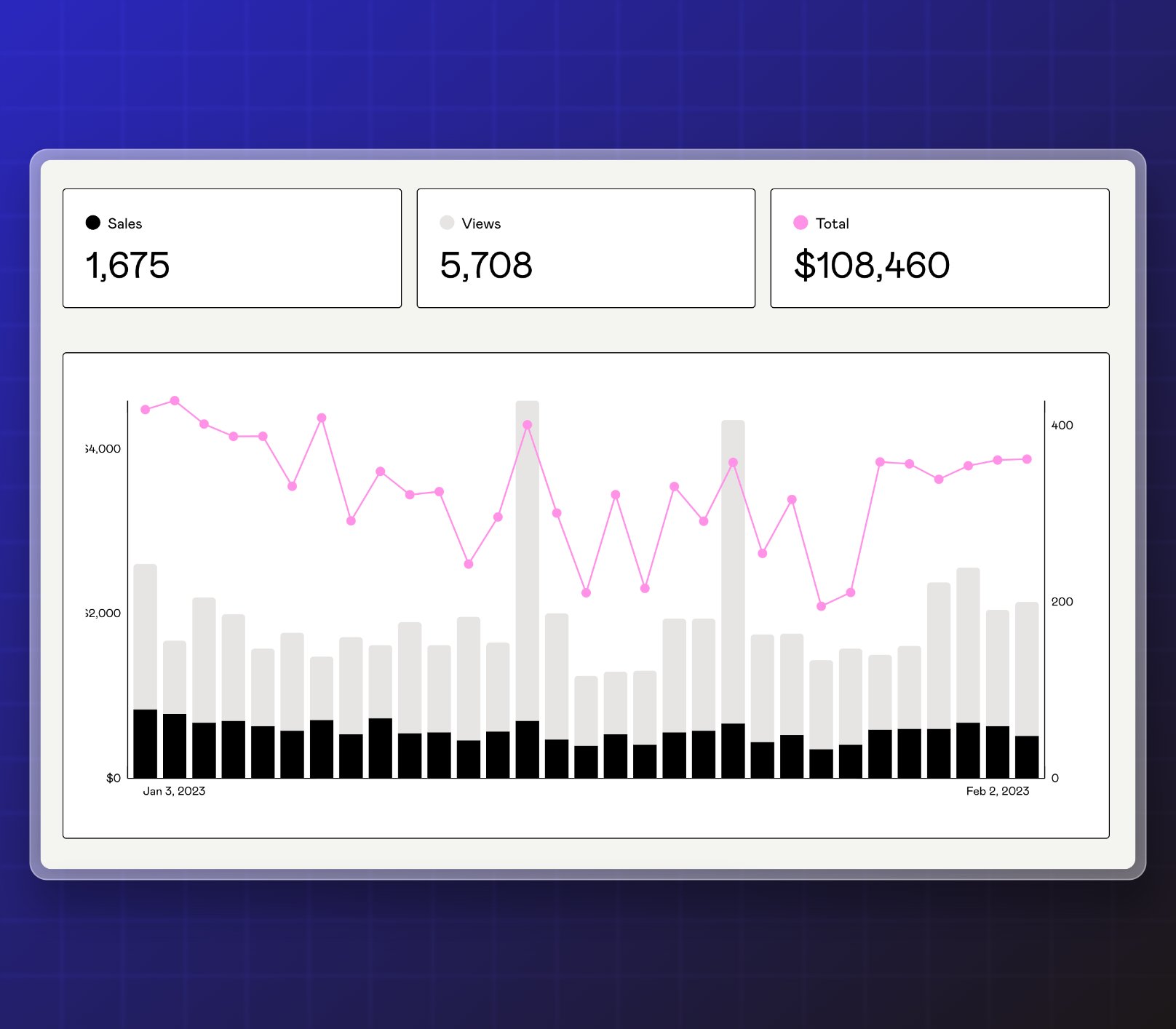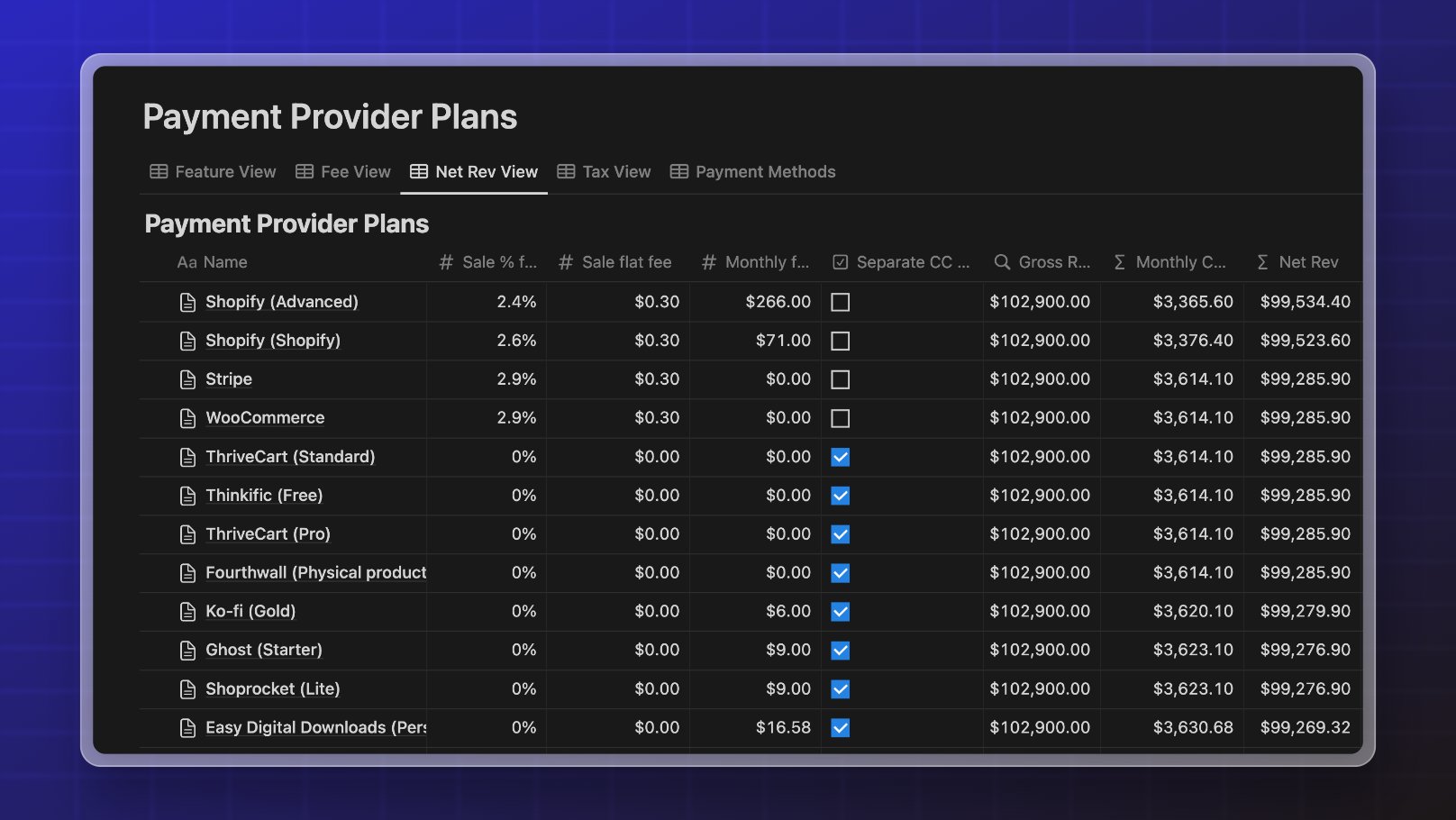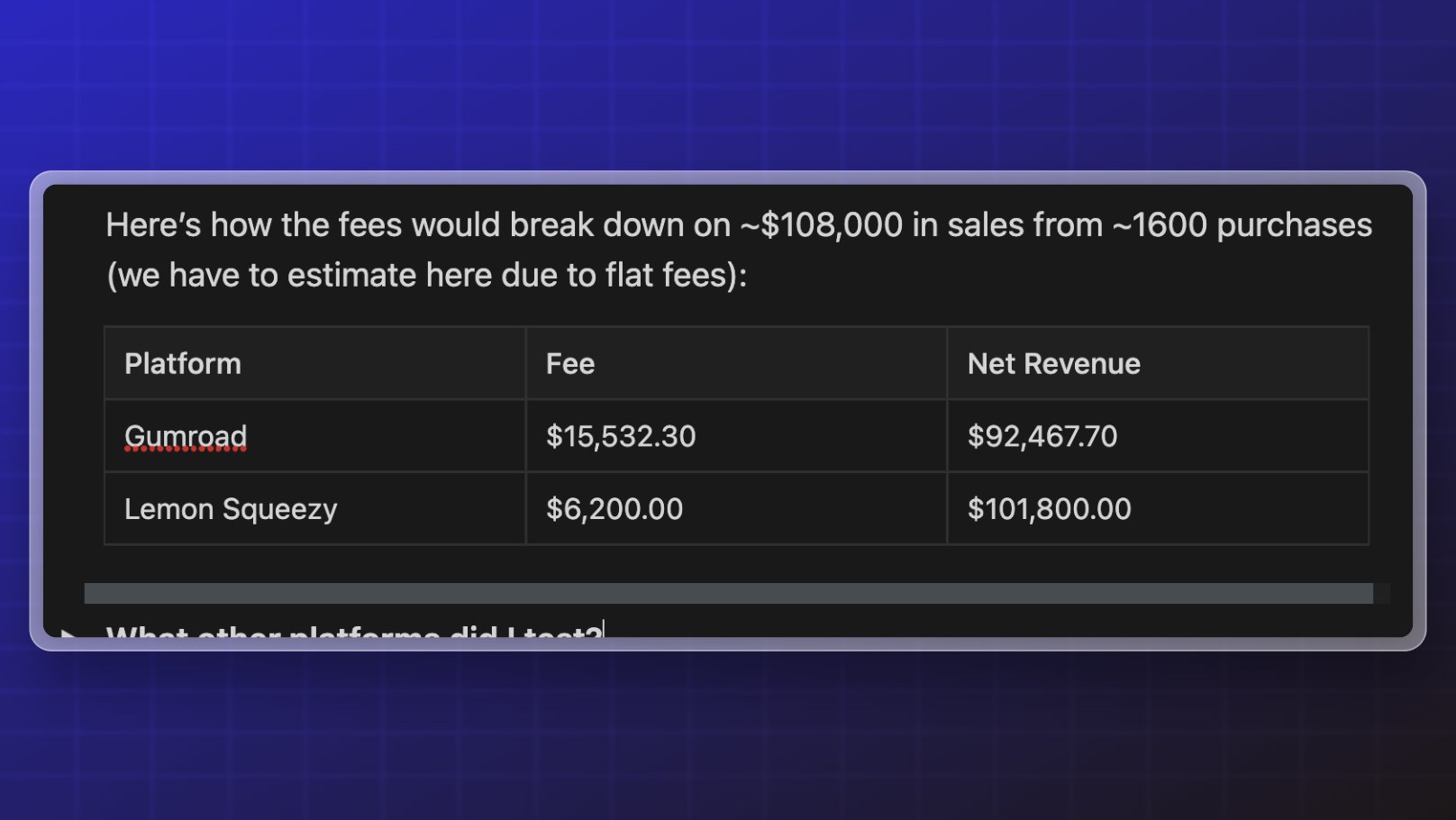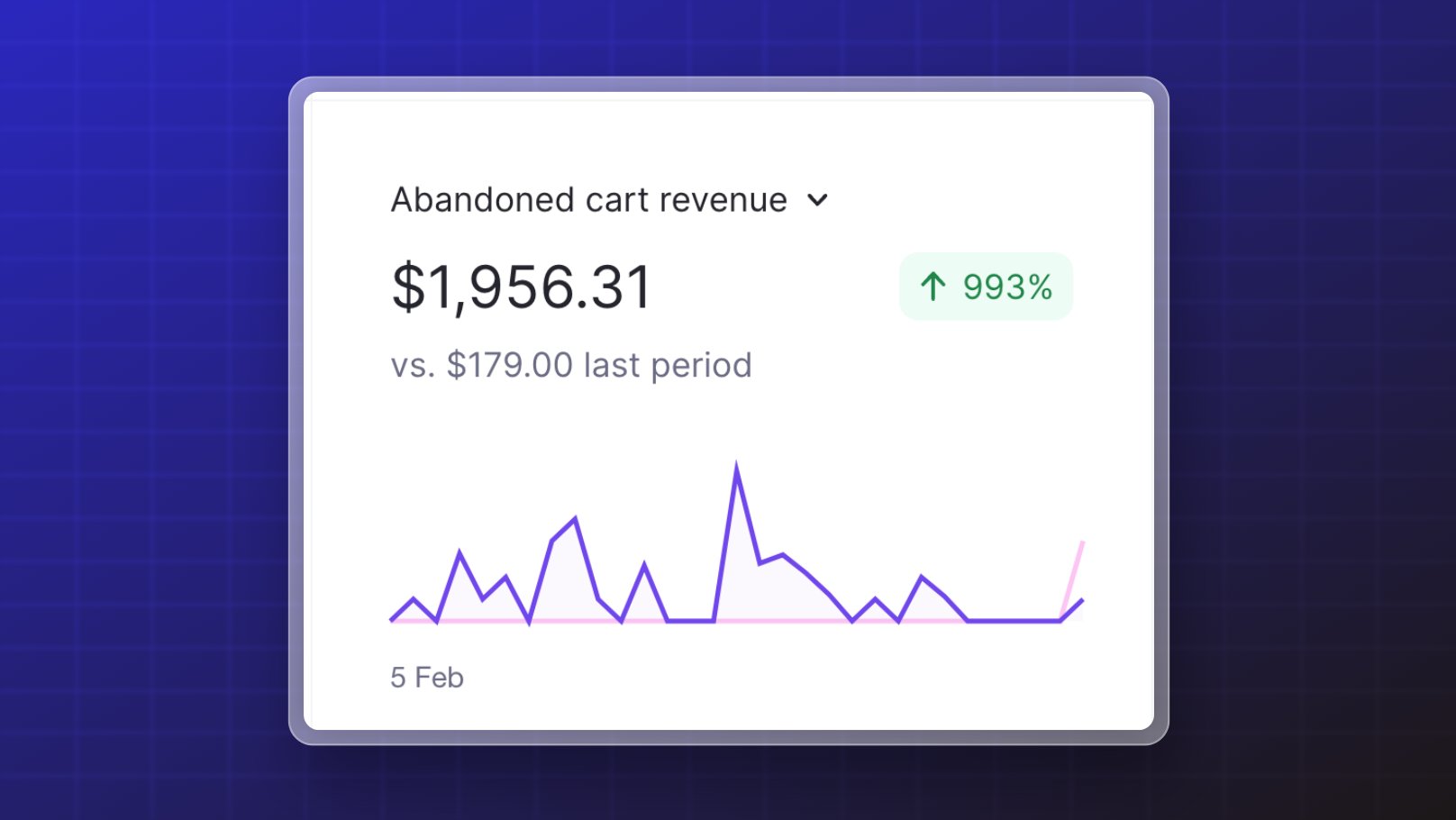Thread
It's been just over a month since Gumroad increased their prices.
It has also been just over a month since I switched to @lmsqueezy for selling my @NotionHQ templates.
I'm finally ready to share my findings, along with a massive free tool I've been working on.
It has also been just over a month since I switched to @lmsqueezy for selling my @NotionHQ templates.
I'm finally ready to share my findings, along with a massive free tool I've been working on.
The TLDR:
I'm very happy with Lemon Squeezy.
As you can see from the image above, sales stayed over the $100k/mo mark after we switched.
We made an additional $6,200 during the same period from Gumroad Discover.
This means we just about matched Jan's $108k revenue on Gumroad.
I'm very happy with Lemon Squeezy.
As you can see from the image above, sales stayed over the $100k/mo mark after we switched.
We made an additional $6,200 during the same period from Gumroad Discover.
This means we just about matched Jan's $108k revenue on Gumroad.
For this and other reasons I'll detail below, I'm happy to recommend Lemon Squeezy as my best overall choice for solopreneurs and small teams.
(I have no stake or financial incentive to make this recommendation at this time.)
(I have no stake or financial incentive to make this recommendation at this time.)
During the last few months, I spent dozens of hours testing other platforms as well.
These include SureCart, WooCommerce, ThriveCart, SamCart, Paddle, and Shopify.
These include SureCart, WooCommerce, ThriveCart, SamCart, Paddle, and Shopify.
Additionally, my team and I spent many hours of research to create a MASSIVE @NotionHQ comparison tool for payment platforms.
It includes nearly every platform that serves creators/small businesses, comparing:
- Fees
- Features
- Tax tools
Get it here: thomasjfrank.com/payment-platforms-tool/
It includes nearly every platform that serves creators/small businesses, comparing:
- Fees
- Features
- Tax tools
Get it here: thomasjfrank.com/payment-platforms-tool/
Now let's get into the nitty-gritty details of my switch.
I ended up choosing to go with @lmsqueezy for one BIG reason:
Tax compliance.
They act as the Merchant of Record, which means they are technically the seller of my templates.
I ended up choosing to go with @lmsqueezy for one BIG reason:
Tax compliance.
They act as the Merchant of Record, which means they are technically the seller of my templates.
This means that they also calculate, collect, and – most crucially – remit sales tax.
I don't have to lift a finger. It's all done for me.
This is the main reason they charge 5% + $0.50 per transaction, rather than the standard 2.9% + $0.30 you can get with Stripe.
I don't have to lift a finger. It's all done for me.
This is the main reason they charge 5% + $0.50 per transaction, rather than the standard 2.9% + $0.30 you can get with Stripe.
I'll note that at my level of sales ($100k/mo) it's possible I could save money by hiring a financial team to handle taxes.
However, it's hard to find someone who knows how to do truly global tax compliance.
However, it's hard to find someone who knows how to do truly global tax compliance.
So, at least for now, I'm happy paying a little bit extra to have my payment platform entirely handle this for me.
A business lesson I've learned many times:
Try to hyper-optimize every little detail, and you get stretched so thin that you can't focus on the big stuff that really moves the needle.
Try to hyper-optimize every little detail, and you get stretched so thin that you can't focus on the big stuff that really moves the needle.
I should also note that @lmsqueezy is one of the few platforms that handles taxes worldwide.
The others are @PaddleHQ, @FastSpring, @teamrevin, @teachable, @Patreon, @shopify Markets Pro, and TransactionCloud (AFAIK).
Gumroad only handles EU VAT and Australian tax remittance.
The others are @PaddleHQ, @FastSpring, @teamrevin, @teachable, @Patreon, @shopify Markets Pro, and TransactionCloud (AFAIK).
Gumroad only handles EU VAT and Australian tax remittance.
Getting back to comparing Gumroad and Lemon Squeezy directly, let's talk about fees.
Gumroad now charges roughly 12.9% + $0.30 per transaction (since they offload the credit card fees onto you now)
Lemon Squeezy charges 5% + $0.50, plus 1.5% for international transactions (currency conversion), 1% for PayPal transactions, and 0.5% for subscription payments.
Lemon Squeezy charges 5% + $0.50, plus 1.5% for international transactions (currency conversion), 1% for PayPal transactions, and 0.5% for subscription payments.
So it's ~not~ as simple as 5% + $0.50 on LS.
That's the fee we pay on the majority of transactions, but the max possible fee would be 8% + $0.50.
That'd be for an international subscription paid through PayPal.
(LS handles the credit card fees themselves)
That's the fee we pay on the majority of transactions, but the max possible fee would be 8% + $0.50.
That'd be for an international subscription paid through PayPal.
(LS handles the credit card fees themselves)
In any case, the fees are still far lower than Gumroad's.
How does that break down in the real world?
How does that break down in the real world?
On an average of $108,000/mo in gross volume over 1,600 transactions averaging $67.50 per transaction (our averages):
- Gumroad: $15,532 fee, $92,467 net revenue
- Lemon Squeezy: $6,200 fee, $101,800 net revenue
The LS number is using their base pricing...
- Gumroad: $15,532 fee, $92,467 net revenue
- Lemon Squeezy: $6,200 fee, $101,800 net revenue
The LS number is using their base pricing...
...so in reality, given our avg. PayPal and international sales, the LS fee should be more like $7,200, bringing Net Rev to $100,800.
Still, we save a significant amount of money.
Still, we save a significant amount of money.
What about conversion rates?
Unfortunately, during January our Google Analytics plugin broke without our knowledge, so I don't have accurate pageview data for my site.
I'm SUPER mad about this, as I really wanted to be able to compare pageviews per conversion.
Unfortunately, during January our Google Analytics plugin broke without our knowledge, so I don't have accurate pageview data for my site.
I'm SUPER mad about this, as I really wanted to be able to compare pageviews per conversion.
What I can say is that I do not believe we experienced a massive jump in conversion rate %, as @_insiteful reported here:
However, I'll note that I designed custom landing pages for all my products.
I've never used the default pages provided by Gumroad or LS, and I don't really recommend anyone do that.
I only use them for the checkout experience.
I've never used the default pages provided by Gumroad or LS, and I don't really recommend anyone do that.
I only use them for the checkout experience.
Still, it seems LS's checkouts haven't significantly ~decreased~ conversions either.
Additionally, LS sends abandoned-checkout emails. Gumroad doesn't do this, and it has resulted in some significant reclaimed revenue.
Additionally, LS sends abandoned-checkout emails. Gumroad doesn't do this, and it has resulted in some significant reclaimed revenue.
To wrap this up and play fair:
Where does @gumroad currently beat @lmsqueezy?
For me, the fee difference and true global tax compliance give Lemon Squeezy the edge.
However, Gumroad still does provide some significant advantages:
Where does @gumroad currently beat @lmsqueezy?
For me, the fee difference and true global tax compliance give Lemon Squeezy the edge.
However, Gumroad still does provide some significant advantages:
1) Faster loading speeds
Gumroad checkouts load faster.
Huge businesses (the Amazons of the world) have found that page speed significantly impacts conversions.
Whether that effect is significant at my much smaller scale is less clear.
Gumroad checkouts load faster.
Huge businesses (the Amazons of the world) have found that page speed significantly impacts conversions.
Whether that effect is significant at my much smaller scale is less clear.
2) Better @ConvertKit integration.
Gumroad has an actual commerce integration, so sales data can be seen in CK.
More significantly, this means you can put people into specific forms and automations based on what products they buy.
Gumroad has an actual commerce integration, so sales data can be seen in CK.
More significantly, this means you can put people into specific forms and automations based on what products they buy.
On LS, the ConvertKit integration is currently very simple; buyers can be added to your ConvertKit account, but that's it.
To get around this, you have to use their Webhooks to programmatically add people to specific ConvertKit forms.
To get around this, you have to use their Webhooks to programmatically add people to specific ConvertKit forms.
I do this for free using @pipedream.
I'll share a screenshot of the automation I built here (scrubbed of sensitive info).
This works flawlessly, but it still requires coding to set up properly.
You can possibly also do this with their @zapier integration.
I'll share a screenshot of the automation I built here (scrubbed of sensitive info).
This works flawlessly, but it still requires coding to set up properly.
You can possibly also do this with their @zapier integration.
3) Gumroad Discover is a marketplace that can drive additional sales.
I've simply kept my products on Gumroad in order to take advantage of this. No reason you can't sell through both (though I may have to deal with a little bit of tax remittance as a result).
I've simply kept my products on Gumroad in order to take advantage of this. No reason you can't sell through both (though I may have to deal with a little bit of tax remittance as a result).
4) Gumroad doesn't charge for email marketing, LS does.
I use @ConvertKit, which is significantly more powerful than either, so this doesn't mean much to me.
I use @ConvertKit, which is significantly more powerful than either, so this doesn't mean much to me.
5) Gumroad has battle-tested, long-running affiliate features. It's easy to let anyone promote your products and get paid.
LS just launched their affiliate tools into beta, so they're not totally public yet.
Another reason my products are still live on Gumroad.
LS just launched their affiliate tools into beta, so they're not totally public yet.
Another reason my products are still live on Gumroad.
A related reminder:
This is a huge reason you do NOT want to link directly to your products on any platform.
Build a landing page you control and link to that.
Otherwise, should you want to switch, you'll likely have lots of URLs out there they need updating.
This is a huge reason you do NOT want to link directly to your products on any platform.
Build a landing page you control and link to that.
Otherwise, should you want to switch, you'll likely have lots of URLs out there they need updating.
My templates are available on a few different marketplaces, such as Notion Everything.
If I hadn't made my own landing pages, I'd have had to ask them to update my links.
If I hadn't made my own landing pages, I'd have had to ask them to update my links.
There are likely other comparison points you can make between these two tools, but that's where I'll stop for today.
I'll also note that both platforms are working on shipping new features.
This comparison may be out of date quite soon.
I'll also note that both platforms are working on shipping new features.
This comparison may be out of date quite soon.
If you want to more deeply compare these and 38 other platforms, check out the comparison tool we built:
thomasjfrank.com/payment-platforms-tool/
thomasjfrank.com/payment-platforms-tool/
Finally, if you found this thread helpful, consider sharing the first tweet:
You can follow me @TomFrankly for more ridiculously long business tweet threads that really should have been blog posts or videos.
You can follow me @TomFrankly for more ridiculously long business tweet threads that really should have been blog posts or videos.
